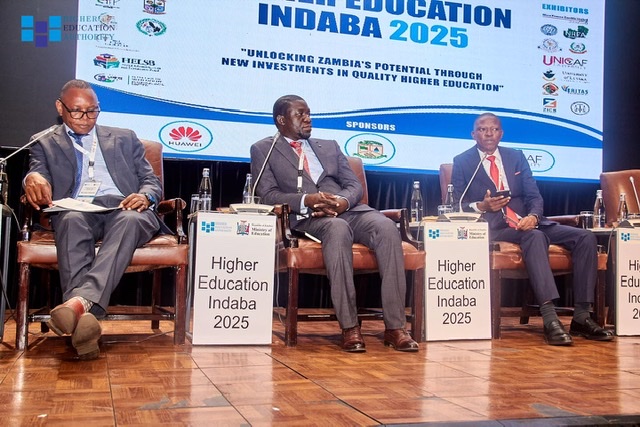ZIALE and UNZA Outline Strategic Reforms for Legal Education and Research at Higher Education Indaba

The second day of the Higher Education Indaba 2025 featured key presentations and thought-provoking discussions from leading academic and institutional delegates, focusing on innovation, policy alignment, and the role of higher education in national development.
CEO of the Zambia Institute for Advanced Legal Education (ZIALE), Mr. Fabian Mayondi, emphasized the critical role of quality legal training in advancing Zambia’s national development.
He highlights challenges such as inadequate practical training opportunities, infrastructural deficits, and the need to review LLB curriculum standards in partnership with relevant authorities.
To address these issues, Mr. Mayondi proposed collaborative efforts between the Ministry of Justice, Law Association of Zambia, and higher education institutions, alongside calls for increased financial support for legal clinics and the development of a modern campus in Chongwe.
He also stresses the importance of leveraging technology through eLearning platforms to improve access to legal education.
Mr. Mayondi further appealed to public and private stakeholders to support ZIALE’s efforts to strengthen legal training infrastructure for the country’s socio-economic growth.
Meanwhile, Deputy Vice-Chancellor for Research and Innovation at the University of Zambia, Professor Erastus Mwanaumo, presented the institution’s strategic vision on research, innovation, and commercialisation at the Higher Education Indaba 2025.
Professor Mwanaumo said the University is aligning its research agenda with national and continental development goals, including the Eighth National Development Plan, Vision 2030, and the African Union’s Agenda 2063.
He explains that UNZA has grown significantly since its establishment in 1965, now offering over 500 programmes to more than 28,000 students, with plans to expand through initiatives such as the Innovation Hub and a target student population of 50,000.
Professor Mwanaumo also echoes the University’s global research impact, citing over 1,700 policy mentions across 28 countries, and emphasizes the need for strong research governance frameworks, commercialisation structures, and investment in innovation to support national economic transformation.
